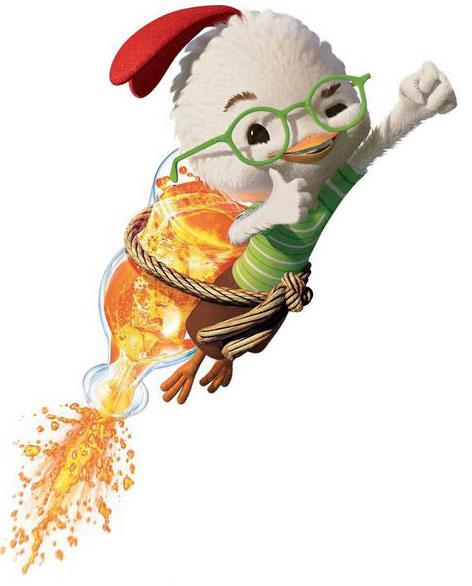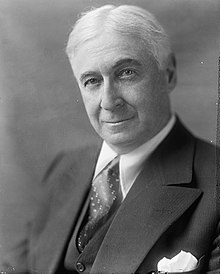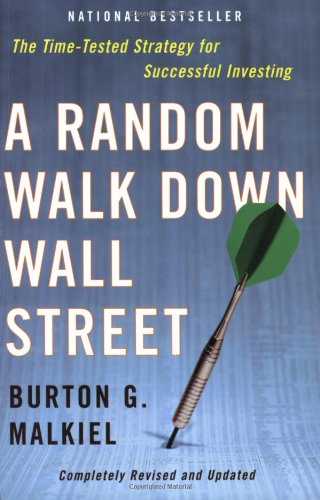
Who cares about Chicken Little?
Before reading on, you might ask yourself why you would care about a trade in the Chicken Little portfolio.
One answer might be that I have strong credentials -- good education (e.g., MIT, Harvard), good training in asset management including a summer at Goldman, Sachs & Co., and a lot of effort to become proficient in navigating asset markets (reading many books, writing Mean Markets and Lizard Brains).
However, I think the background of an investor is almost irrelevant to the likelihood of a successful investment decision.
Bernard Baruch is famously quoted saying, "If you are ready to give up everything else - to study the whole history and background of the market and all the principal companies whose stocks are on the board as carefully as a medical student studies anatomy - if you can do all that, and, in addition, you have the cool nerves of a great gambler, the sixth sense of a kind of clairvoyant, and the courage of a lion, you have a ghost of a chance."
 |
| Bernard Baruch |
In investing, it is unclear if any of these attributes lead to success. The most systematic academic study of mutual fund managers (Link to: Luck vs. Skill) concludes that the average manager does not have enough skill to cover their fees, but there might be skill - both positive and negative at both extremes --"inferior and superior performance (nonzero true alpha) in the extreme tails." So the average mutual fund manager costs their clients money -- the clients would be better off investing passively.
In my case, I am currently in last place in my own Chicken Little contest (click to view/join), being soundly defeated by everyone else including my six-year-old daughter Ivy. So do not read about this trade expecting to copy it and become rich.

The best answer I can give for why you might want to read on is that I would have loved to have an honest example of a real investment when I was first learning about markets. It is hard to learn from reading about historical trades -- the authors tend to present winning trades. The readers tend to think the trades look easy in retrospect (e.g., of course we all knew housing prices were too high in 2007).
Watching a trade in real-time is possible now with modern technology, and some people might learn from me regardless of whether this trade is costly or profitable. Perhaps someone can suffer less by watching me burn my hand.

The Trade - Short the Dow Jones Industrial Average
Order #1: Short DIA at a limit of $182/share.
DIA - is the ETF for the Dow Jones Industrial Average. The DIA's price is very close to the Dow Jones Industrial Average divided by 100. For example, when the Dow Jones Industrial Average is at 18,000, the DIA is very close to $180/share.
Shorting the DIA is a trade that will make money if the Dow Jones Industrial Average goes down. Conversely, the trade will lose money if the Dow Jones Industrial Average goes up.
I entered the trade into my account over the weekend of May 2, 2015. The order was a limit order. That means I would sell the DIA short if, and only if, my broker could find a buyer willing to pay $182/share.
Chicken Little Investing Rule: Make investing decisions over the weekend when the stock market is closed.
The chart below shows the DIA over the last 10 days (Tuesday 4/28/2015 - Monday 5/11/2015). The DIA hit $182, the limit price in my order on Friday, May 8th, thus the trade executed in a pre-scripted manner.
| DIA chart from Bigchart.com |
Chicken Little Investing Rule: Plan the exit of an investment at the time of initiation.
As soon as the trade occurred, I logged on to my account to enter trades to exit the position. The orders I entered were as follows:
Order #2: Buy (to cover) DIA with a stop-limit order. Stop price = $182.69, Limit Price = $184.68
This order will close out my position if the DIA rises to $182.69 (or higher). As entered, I will only buy the stock back at a price at or below $184.68.
Order #2 is "stop-loss" order. It "stops" me out of the position if I a wrong on the trade. Specifically, this order is designed to be activated if the Dow Jones Industrial Average goes up to a new, all-time high. In the history of the world, the highest price the DIA has ever traded is $182.68 -- thus a trade at $182.69 will be a new record. In such an event, I will out of my trade, and I will have lost money.
Why did I use "stop-limit" instead of a stop order? A stop-limit protects me from buying at an extremely high price in some variant of the flash crash. Using a stop-limit, however, does introduce the possibility that I will not cover my short position. If the Dow Jones Average moves instantaneously from $172.68 to $174.69 (a 200-point move in the Dow Jones Industrial Average), then my trade may not get executed.
So order #2 is designed to exit the trade if the Dow hits a new, all-time record high.
Order #3: Sell DIA with a stop-limit order. Stop price $178, Limit $177.
This order doubles the size of my position if the Dow drops about 400 points from the execution of order #1.
Why sell more at a lower price? Adding to a winning trade is called pyramiding.
Chicken Little Investing Rule: Losers Average Losers (taken from the legend Paul Tudor Jones II).
 |
| Paul Tudor Jones circa late 1980s |
In my investing, I add to winners by pyramiding into trades. In a short sale, pyramiding means selling more at lower prices.
Order #4 (not entered yet): If order #3 is executed, I will change order #2 to cover the larger size.
Order #5, 6, 7 (not entered yet): If the Dow enters a substantial decline, I will move the stop-limit order down in price.
Possible Outcomes
There are three possible outcomes to this trade.
Outcome #1: Stopped out on original order. If the Dow makes a new high, I will be stopped out for a loss.
Outcome #2: Stopped out after doubling the order. If the Dow dips low enough to active order #2 then rallies to a new high, I will be stopped out for a loss.
Outcome #3: The Dow fails to make a new all-time high. The stop-limit is moved down, and eventually I get stopped out for a profit -- could be years from now.
What are the chances that I make money on this trade? Roughly 0%; as much chance as a snowball not in heaven, or the chance Olaf would enjoy the beach.
 |
| Olaf loves Summer |
There is exactly one profitable outcome for this trade -- the Dow Jones Industrial Average fails to make a new record high any time soon. We are so close to the all-time high that we are almost certain to make new highs.
Why have a made a trade that I believe will lose money with near certainty?
Why have a made a trade that I believe will lose money with near certainty?
Motivation #1: Fundamental
I fear an economic depression worse than the Great Depression of the 1930s. You can see/read my views in prior posts (TV interview, Dow 5000 revisited, Dow 5000). In such an environment, stocks will decline.
Motivation #2: Technical


The all time record closing high in the Dow Jones Industrial Average is 18,288.63 on March 2, 2015. Is it possible that March 2nd was a high value that we will not see again for some time? Unlikely, but not impossible.
long-term interest US interest rates have risen substantially in the last 3 months. The rise in rates have been quite dramatic and quite rapid. So perhaps US bonds topped in price around the beginning of February, and The Dow Jones Industrial Average topped about a month later.
Motivation #3: Behavioral
Chelsea Handler told a dirty joke at a concert I attended in Boston some years ago. She reported having done some body modification that was permanent only to have the fashion reverse itself. She then said, what f**** am I supposed to do now?
I have been negative on the stock market for years. To quote Chelsea Handler in an investing context, what the f*** am I supposed to do if the stock market crashes? As Chicken Little, I have hated the stock market for years. If the market crashes it will be very difficult psychologically to short a falling market. I find it easier, however, to add to a winning position rather than start a new position in the midst of rapid price changes. Thus, while my trade size in this initial position is small, I can add to the short position over time.
Updates:
As the days pass, I will update this section. (If you have read all the way here, you are probably a trading addict.)
Chelsea Handler told a dirty joke at a concert I attended in Boston some years ago. She reported having done some body modification that was permanent only to have the fashion reverse itself. She then said, what f**** am I supposed to do now?
| Chelsea Handler |
I have been negative on the stock market for years. To quote Chelsea Handler in an investing context, what the f*** am I supposed to do if the stock market crashes? As Chicken Little, I have hated the stock market for years. If the market crashes it will be very difficult psychologically to short a falling market. I find it easier, however, to add to a winning position rather than start a new position in the midst of rapid price changes. Thus, while my trade size in this initial position is small, I can add to the short position over time.
Updates:
As the days pass, I will update this section. (If you have read all the way here, you are probably a trading addict.)


No comments :
Post a Comment